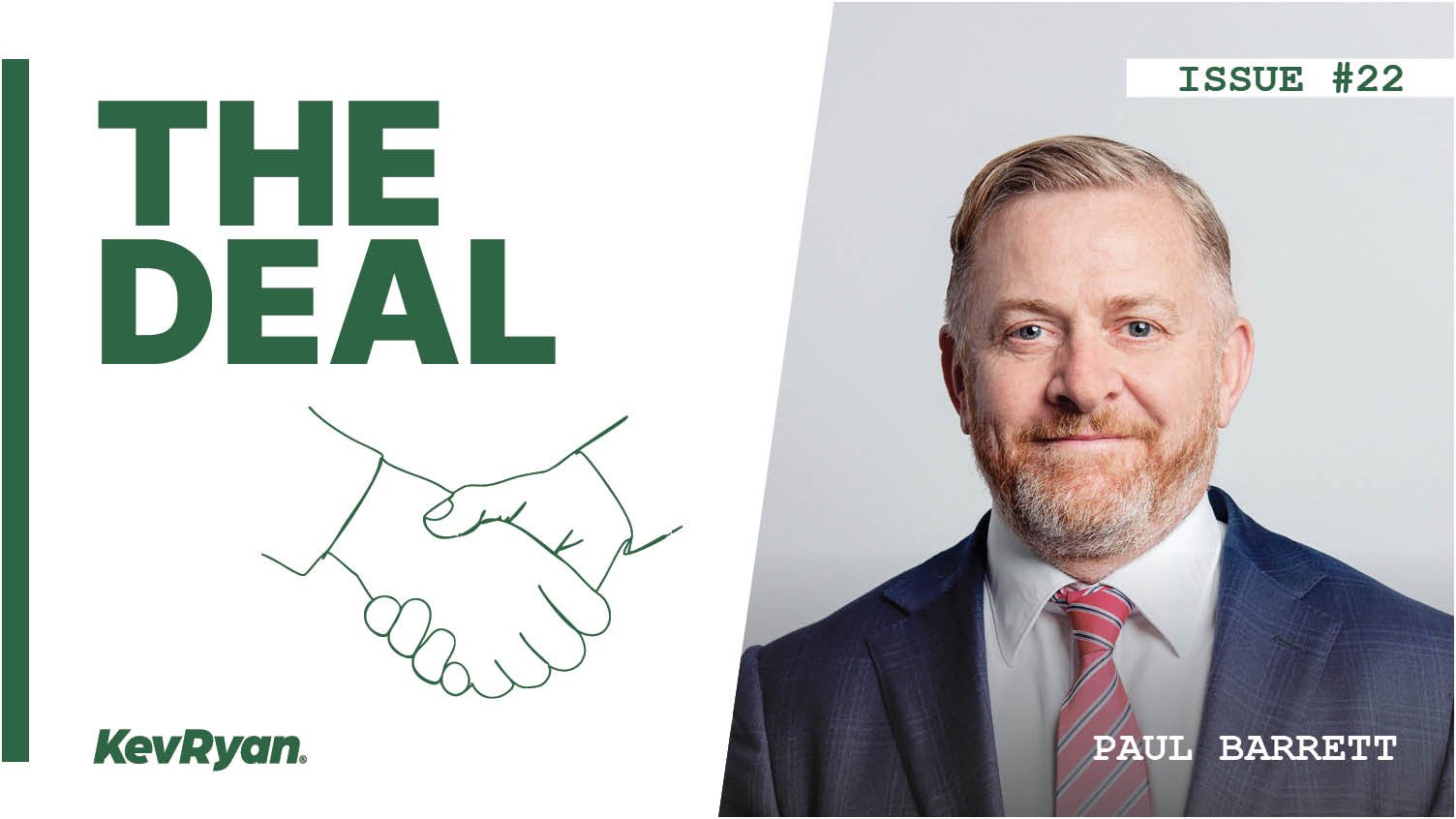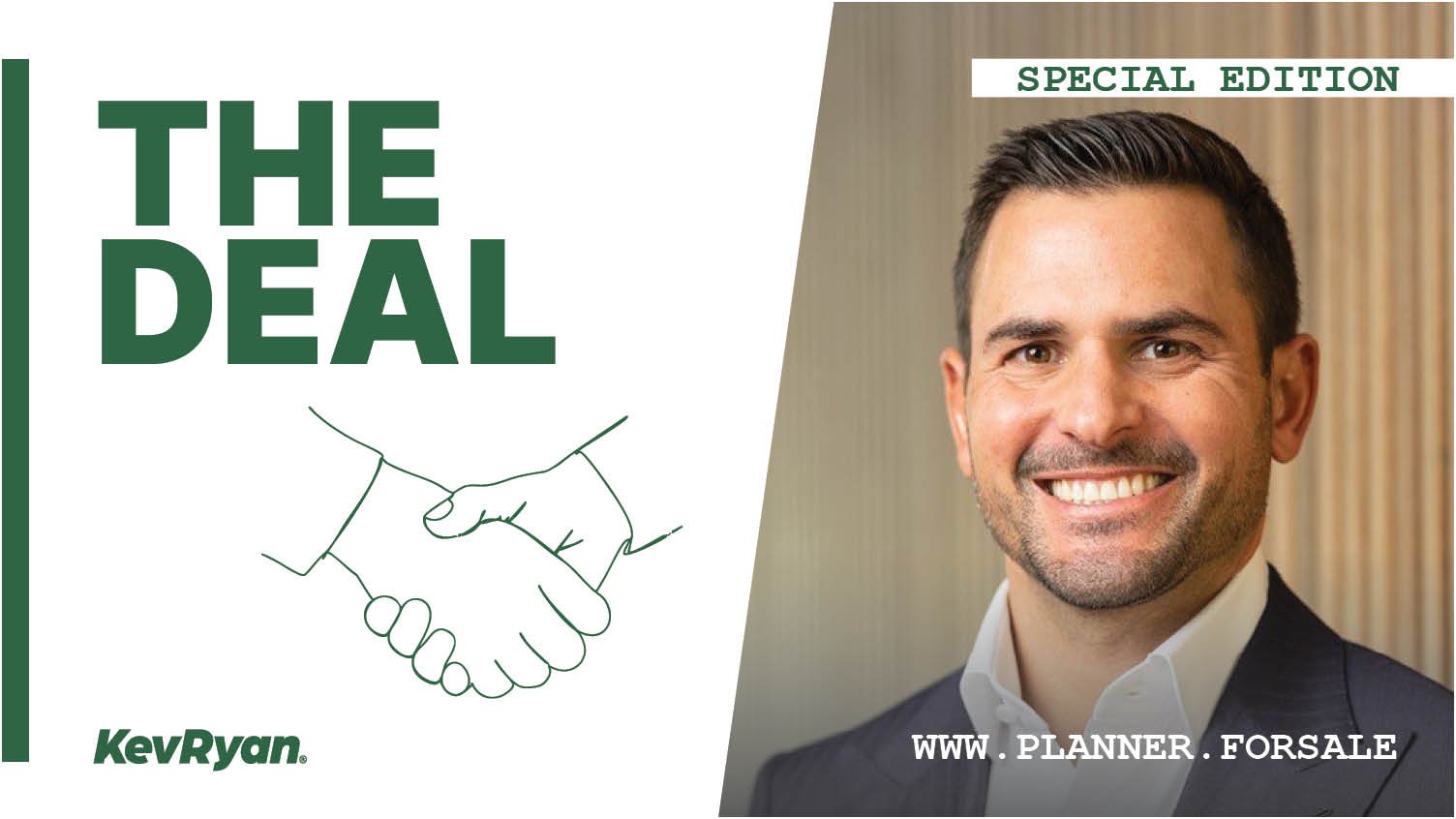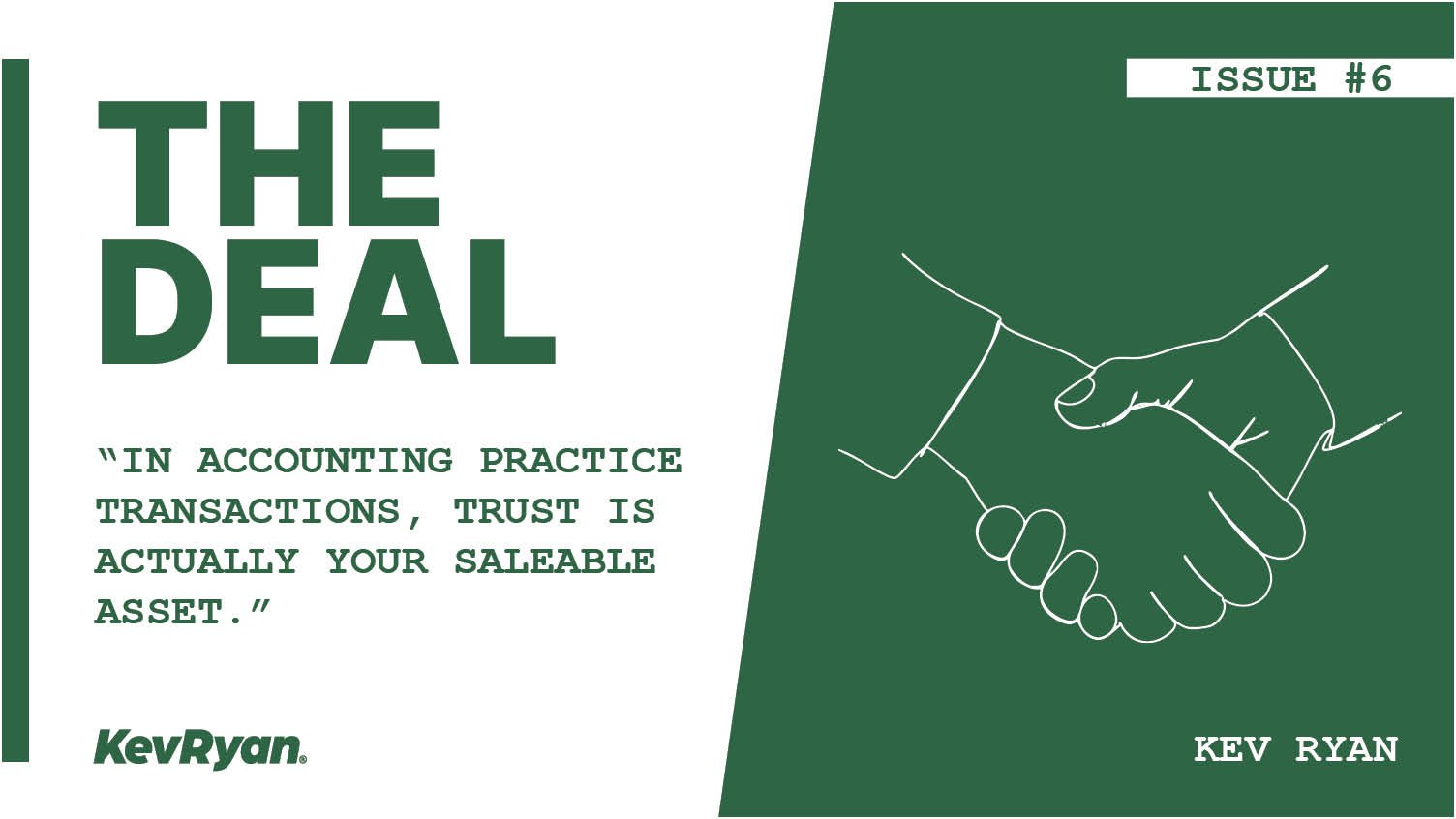Why do some accountants avoid addressing succession planning?

There are a lot of accounting industry participants who at some stage in their careers have either experienced or know a someone who has experienced, the good old dangling of the “Partnership” carrot. “You’ll be Partner... one day!”.
So why is it that so many Sole Practitioners fail to deliver on their promise to transfer some or all business ownership to their loyal Senior Managers?
In my experience there are only two major factors at play here – financial & psychological.
Financial
Most of the accounting industry stats are made up (in my humble opinion). So, the stat I make up is that 65% or more of the AUS accounting industry consist of Sole Practitioners generating well less than $1 million in revenue with an average say around $500 - $600k.
Thus the industry is made up of micro businesses, generally run pretty poorly and not profitably from a ‘business’ point of view – in that profit really is just the owners wages and not particularly good ones.
Thus, when it comes to considering the sharing of what is generally a small pie, it’s human nature to say NO.
It has surprised me along the way, through activities such as www.mergetoretire.com, just how poorly prepared some accountants can be when it comes to actually being financially able to retire. This can also affect their willingness to bring a team member into an equity position.
Psychological
Two parts to this – ego and mortality.
I’ve been building relationships with AUS accounting practitioners since the late 1990s, either selling too or through their firms and I can tell you that it has never ceased to surprise me when it comes to ego – they sure do have them!
As such ego plays a big part in not wanting to either share the limelight or indeed pass the baton on.
Ego also rears its non-attractive head in relation to financial aspects mentioned above, in that the business owner doesn’t really want to share the poor performance data with the up and comer, although that person has likely already done the math and worked that out.
I’ve noticed that Succession Planning is often avoided because it brings up so much psychologically, including one’s mortality. I’ve seen practitioners, normally men, quickly project from the discussion around appointing a Junior Partner to death. Seriously, I have. The psychology piece here extends to avoiding the hard discussions also, both personally and business wise. The issue is often family related. Changes to shareholders agreements could lead to required changes to wills which could lead to a need for hard conversations around the family dinner table. I understand why people avoid such, but I’m sure accountants advise their clients to do exactly what they put off.
Psychologically practitioners are often simply not able to let go. There is an identity crises – "If I’m not the figurehead of this firm, the go to person for loyal clientele whom I believe think I’m a genius, then who will I be". Further to this point, not letting go is tied to the mortality stresses. In addition, many practitioners have failed to fill their precious time with things other than work and suffer a lack of outside interest. The firm is safe place and somewhere to be and the work has become a hobby, something to do.
MORE ISSUES
In practice since July, 1976, Graham Gunn had one simple wish as he put his business onto the market – that his clients were well cared for. After all, they’d been a part of his life for quite a while...
When Andrea Pearce contacted Kev Ryan desperate to sell her business, a remarkable journey of reinvention began.
Employee entitlements and consultation are often overlooked during a deal, giving rise to numerous issues. Fortunately, says employment relations specialist Rachael Smith, getting it right is easier than you think.
Once an accounting firm has client engagement sorted, and preferably automated, the business becomes more profitable and easier to sell.
If you own your practice, proactive estate planning can enhance your legacy, support your loved ones and protect your staff.
The sale of an accounting firm requires careful planning and strategy. Transaction advisor Kev Ryan shares his insight into the essential ingredients for sale success.
For a successful strategic partnership after a merger, flawless due diligence and complete cultural alignment are essential.
Many think the biggest challenge in selling an accounting business will be in haggling over the price. But agreeing value, Kev Ryan says, is the easy part.
When the demands of his accounting business became overwhelming, Maurice Sucevic found a way to continue doing what he loved, without all the admin.
With a significant number of accounting firm owners looking towards a well-deserved retirement over the next decade, the industry will see an increasing number of mid-tier practices in the mergers & acquisition market.
Hartnett & Co’s significant client portfolio appealed to Progression Group, aligning with their areas of expertise and presenting a strategic opportunity to expand their client base and enhance efficiencies.
The journey towards the partnership with Carbon Group started from the realisation that as successful as MG Partners was, Mike and George needed to have a succession plan in place.
There are over 37,400 accounting businesses in Australia, according to IBIS World. The majority are small to medium enterprises (SMEs).
Each February, Australia Day sees the summer break come to an end and with school recommencing, Accountants that have been considering the year ahead start calling my office.
Accounting firms, known for their meticulous number-crunching skills, often find themselves embroiled in complex staffing issues when it comes to mergers and acquisitions.
As the year comes to an end, I thought this December Issue of The Deal could cover a recap of the year’s transactions
Malcolm had been working in his firm for over 20 years and business had plateaued. He wanted to expand but didn’t have the time, capacity, or resources.
A spate of mergers and acquisitions in the accounting industry shows the dynamics around consolidation have changed dramatically since the pandemic.
A spate of mergers and acquisitions in the accounting industry shows the dynamics around consolidation have changed dramatically since the pandemic.
In the dynamic world of business, growth strategies play a defining role in achieving long-term success.
TC & Co Consulting is a Sunshine Coast based accounting firm that Kev Ryan helped progress to the next level through a business sale process with the Gild Group.
Last month, I was fortunate enough to be invited to speak with the CPAs Sunshine Coast discussion group on the topic of Accounting Practice M&A.
Have you ever found yourself wondering “what’s next”?
“This is way harder than it used to be.”
“This isn’t my job is it?” …
It is with great pleasure I introduce www.Planner.forsale and our launch marquee Buy Side client Nick Reilly of Inovayt Wealth.
Kevin Scambler wanted a partner he could trust that would ultimately buy him out. Andrew Burness was looking to become more invested, building something that would advance his career.
A lawyer’s role is to protect the legal interests of their client. Schooled in spotting problems, and often risk averse themselves, lawyers naturally seek to minimise risks to their clients.
There are a lot of accounting industry participants who at some stage in their careers have either experienced or know a someone who has experienced, the good old dangling of the “Partnership” carrot.
Gary wanted to provide consistent outstanding service in his accounting business. This meant making strategic decisions about other interests consuming his time and energy.
When selling your accounting business, you really have only one job to do... get your clients to simply keep doing what they've always done, trust you!





























